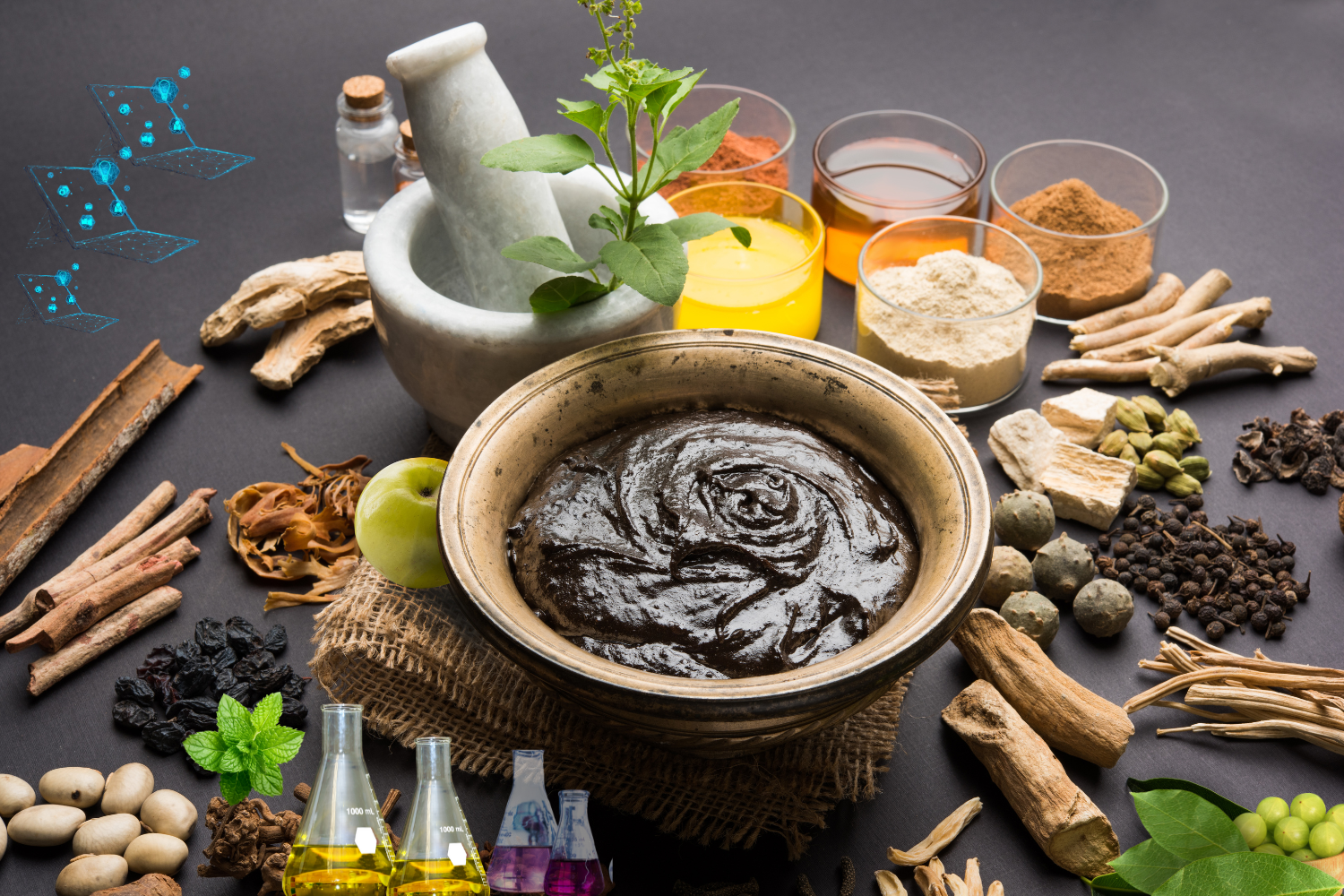India Becomes First Country to Digitize Traditional Medicine Through AI-Powered Library
Ankita
. 4 min read
India has become the first nation in the world to digitize its traditional medicine systems through an AI-powered library. This bold initiative marks a pivotal step towards preserving, promoting, and globalizing India’s rich legacy in alternative healthcare systems such as Ayurveda, Unani, Siddha, Sowa-Rigpa, Naturopathy, and Homeopathy. India is the first to digitize its traditional medicine system at a national scale using AI. Other countries may have digitized parts of their heritage, but not with such scope or focus on traditional medicine.

Preserving Ancient Wisdom for the Future
India has long been regarded as a cradle of traditional medicine, with centuries-old practices rooted in natural remedies, herbal science, and holistic healing. However, a vast portion of this invaluable knowledge has remained trapped in ancient manuscripts, many of which are written in languages such as Sanskrit, Persian, and Tamil. With time, these handwritten texts faced the risk of deterioration or being lost entirely.
To address this challenge, the Ministry of Ayush, in collaboration with technology partners and AI developers, has launched a visionary project: an AI-powered digital library of traditional medicine. This library aims to digitize, categorise, and make accessible over 120,000 ancient medical manuscripts, formulas, case records, and pharmacopoeias from across India.
AI-powered digital library
The AI-powered digital library of traditional medicine is a technological platform launched by India to digitally store, organise, and analyse ancient Indian medical knowledge using Artificial Intelligence (AI).
It is an online system that collects and digitises ancient manuscripts, herbal formulations, treatments, and classical texts from India’s traditional medicine systems, like:
Ayurveda
Unani
Siddha
Sowa-Rigpa
Homeopathy
Naturopathy
Why Is It Called "AI-Powered"?
It’s called “AI-powered” because it uses Artificial Intelligence technologies such as:
Natural Language Processing (NLP) – to understand and translate old texts
Machine Learning – to learn from data and make recommendations
Image Recognition – to scan and decode old manuscripts
Data Mining – to connect traditional and modern treatments
How AI Will Help in Digitizing Traditional Medicine
1. Digitizing Ancient Manuscripts
AI can scan and read handwritten texts in ancient languages like Sanskrit, Tamil, Persian, and Arabic.
Uses Optical Character Recognition (OCR) to convert scanned pages into digital, searchable text.
AI image enhancement tools can be used to read and restore even faded or damaged manuscripts.
2. Understanding & Translating Complex Language
Traditional medicine uses metaphors, poetic language, and ancient terminology.
AI language models can translate these into modern medical terms.
Natural Language Processing (NLP) helps interpret context, making the knowledge usable by doctors and researchers today.
3. Organizing Massive Data
India has thousands of texts, remedies, herbs, and treatment methods. AI helps classify them into structured categories such as diseases, herbs, doshas, treatments, etc.
Builds a searchable, interconnected knowledge base.
4. Discovering New Insights
AI can identify patterns and relationships between ingredients and illnesses across different texts.
Helps validate old remedies scientifically and suggest new combinations or therapies.
Aids in drug discovery by cross-referencing with modern clinical data.
5. Personalized Healthcare Recommendations
Using AI, ancient principles like Prakriti (body constitution) can be matched with a person’s modern health profile.
AI can offer customized Ayurvedic advice based on genetics, diet, lifestyle, and health conditions.
6. Protection of Traditional Knowledge
AI tools can detect plagiarism or illegal patents filed using India’s traditional knowledge.
Supports the Traditional Knowledge Digital Library (TKDL) in its efforts to prevent biopiracy.
7. Global Access and Collaboration
AI-powered platforms allow doctors, researchers, and pharma companies worldwide to explore this knowledge.
Creates standardized, multilingual versions of ancient texts, making them easier to adopt globally.
Conclusion
India’s bold step to digitize its traditional medicine using AI is a groundbreaking fusion of ancient heritage and modern technology. In addition to protecting its cultural identity, India is releasing enormous potential in healthcare, research, innovation, and global wellness leadership by conserving centuries-old wisdom and making it easily accessible, organized, and scientifically useful.
Artificial Intelligence empowers this transformation by enabling translation, data analysis, personalization, and discovery, ensuring that traditional systems like Ayurveda, Unani, Siddha, and Yoga remain relevant, trusted, and respected in today’s evidence-based medical world.
This project aims to establish India as a global center for comprehensive, AI-enabled healthcare in the future, and it goes beyond simple digitization.
More Stories from
How did India respond to Donald Trump's 25% tariff penalty on India?
Trade tensions between the United States and India have sharply increased as a result of this recent development. Know how India responds to Donald Trump's 25% tariff penalty on India.
Geoffrey Hinton's AI Warning: The Most Dangerous Invention Ever
AI is both beneficial and dangerous, depending on how it is developed, deployed, and regulated.
Unbelievable Facts about World History that will surprise you
Human history and the natural world are filled with mysteries, marvels, and strange truths that challenge our understanding. In this article, we will explore some unbelievable facts about world history.
Why skill-based hiring is gaining importance over degrees?
Skill-based hiring vs Degree, which matters first? what you can do” matters more than “what degree you hold.”
The Hidden Secret of the Great Pyramid’s exposed
With the development of scientific instruments and technology, each day, discoveries about the world are surprising us





